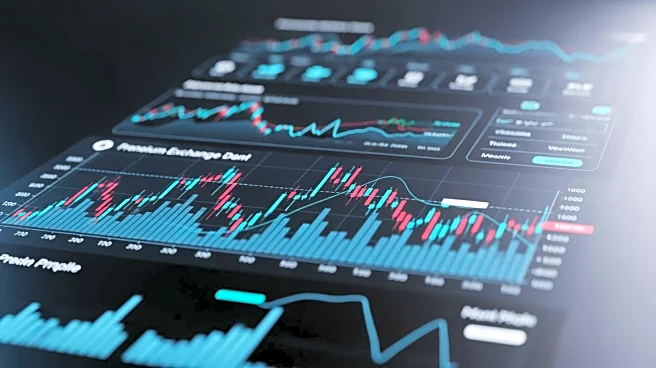What's Happening?
Binance CEO Richard Teng has refuted allegations that the cryptocurrency exchange favored a Trump-backed stablecoin prior to the presidential pardon of former CEO Changpeng Zhao. The controversy centers
around a $2 billion investment from Abu Dhabi's MGX, settled using USD1, a stablecoin from the Trump family's World Liberty Financial. This investment and Binance's listing of USD1 have raised questions about potential influence on Zhao's pardon. Donald Trump Jr. and Zach Witkoff, co-founders of World Liberty Financial, have dismissed concerns about conflicts of interest, emphasizing their fathers' lack of involvement in the business.
Why It's Important?
The situation highlights potential conflicts of interest involving the Trump administration and the cryptocurrency industry. The pardon of Zhao, who pleaded guilty to money laundering, has drawn scrutiny from lawmakers, including Sen. Elizabeth Warren, who accused Binance and the Trump administration of corruption. The involvement of World Liberty Financial, a Trump-affiliated firm, in the transaction raises questions about the intersection of politics and business, potentially impacting public trust in the administration's decisions.
What's Next?
Further investigations and political scrutiny are likely, as opposition leaders continue to question the pardon and its implications. The controversy may lead to increased regulatory scrutiny of cryptocurrency exchanges and their connections to political figures. Stakeholders in the crypto industry may face pressure to demonstrate transparency and ethical business practices.
Beyond the Headlines
The case underscores the ethical challenges in the cryptocurrency sector, where financial interests can intersect with political influence. The situation may prompt discussions on the need for clearer regulations and ethical guidelines to prevent conflicts of interest and ensure fair practices in the industry.








